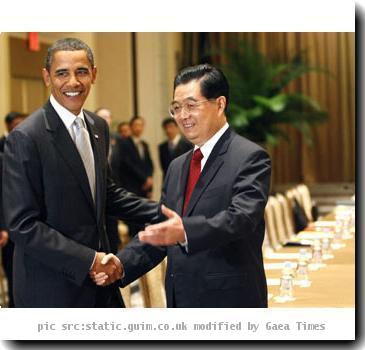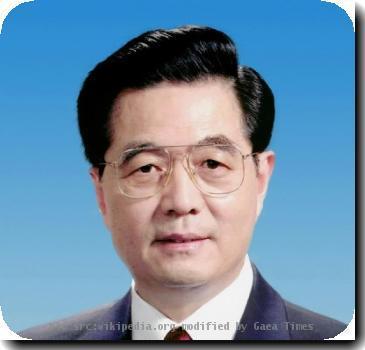Premier says China to boost social spending, especially to restive ethnic groups
By Charles Hutzler, APThursday, March 4, 2010
China boosts social spending, targets minorities
BEIJING — China’s government pushed ahead Friday with plans to strengthen economic growth while dampening social tensions, introducing a budget intended to narrow a rich-poor gap and bring growth to rebellious ethnic areas.
In a speech that is China’s equivalent of a state-of-the-nation address, Premier Wen Jiabao said the government would more than halve the increase in spending, to 11.4 percent, as it eases off the heavy stimulus that warded off last year’s global recession. Still, Wen promised hefty outlays for pensions, education, health care and subsidies for farmers to buy small cars and household appliances — all to spread prosperity more fairly.
“Everything we do, we do to ensure that the people live a happier life with more dignity and to make our society fairer and more harmonious,” Wen told the nearly 3,000 deputies gathered in the Great Hall of the People for the opening of the National People’s Congress.
The annual session — the most public event the authoritarian government holds — took place amid heavy security in Beijing to prevent disruptions. Police in recent days warned and detained political activists. Uniformed and plainclothes police searched bags and blocked off vast Tiananmen Square, next to the meeting hall. More than two dozen people who hoped to petition officials for redress of grievances or who raised suspicion were bundled into a police bus and driven away.
Wen’s address mixed restrained triumphalism over China’s growing power with hints of anxiety about percolating international and domestic troubles.
With China having escaped the worst of the global downturn by ordering a flood of $1.4 trillion in bank lending and government stimulus, Chinese leaders see their model of heavy state intervention as having outperformed the capitalist West. Wen hailed the communist leadership for shepherding the recovery. China is now the world’s largest auto market, its Internet users outnumber the U.S. population and its economy is on track to replace Japan as the globe’s No. 2. Many Chinese take pride in the country’s prosperity and global respect.
Yet Beijing is jutting elbows with the U.S. and Europe over climate change, Iran’s nuclear program and the Chinese currency, which critics say is set artificially low to give China an unfair trade advantage. At home, Chinese are worried about rising housing prices and tiring of widespread official corruption and government policies that are seen as benefiting the communist elite, the wealthy and the connected; protests have become common to draw attention to land seizures, unpaid wages and other acts of unfairness.
“This is a crucial year for continuing to deal with the global financial crisis,” Wen said in a two-hour speech. “We still face a very complex situation.”
Economic recovery remains fragile in important overseas markets, Wen said, while at home domestic demand is weak and risks are rising for banks — possible fallout from last year’s binge spending.
Although Wen did not mention anti-government protests by Tibetans in 2008 and ethnic fighting among Muslim Uighurs and China’s Han majority in 2009, he said a special effort will be made to raise living standards of minorities.
“The Chinese nation’s life, strength and hopes lie in promoting solidarity and achieving common progress of our ethnic groups,” Wen said. “We need to take a clear-cut stand against attempts to split the nation, safeguard national unity, and get ethnic minorities and the people of all ethnic groups who live in ethnic minority areas to feel the warmth of the motherland as one large family.”
Few initiatives in Wen’s speech were new. The cautious government prefers incremental policymaking to bold shifts. Wen and President Hu Jintao began boosting social spending earlier this decade, recognizing the threat that social unrest poses to Communist Party rule. Now in the last three years of an expected 10-year term, they have less incentive and political support to strike out in new directions.
In keeping with that, Wen announced the usual economic growth target of 8 percent for this year. While the goal is usually exceeded, including it shows that Beijing aims to avoid any slip after rebounding strongly from the world economic crisis. Growth in the final quarter of 2009 reached 10.7 percent, lifting the full-year rate to 8.7 percent, the highest of any major economy.
Overall, government spending is projected to rise 11.4 percent from last year, to 8.45 trillion yuan ($1.2 trillion), on the back of a deficit that will rise at 13 percent. Slated for higher outlays were education (9 percent), health care (8.8 percent), social security (8.7 percent) and low-income housing (14.8 percent).
Significantly the increases were higher than that given the military, which is projected to receive a 7.5 percent budget boost, its lowest in two decades.
Despite the emphasis on public fairness, the congress is highly staged political theater. With all decisions made ahead of time by the leadership, the party-dominated congress — and a simultaneous meeting of a government advisory body — are more about networking than lawmaking, adding to public cynicism.
“It’s a political carnival. Officials from all sectors from across the country pour into Beijing, bringing their aides and entourage,” said Yang Fengchun, a professor of government at Peking University. “Negative public sentiment and social instability are increasing rapidly in China. These issues are not new ones. Only now they have become more severe and more evident, and they could carry social and political costs.”
Tags: Asia, Beijing, China, East Asia, Greater China, Hu Jintao, Political Activism, Political Issues

